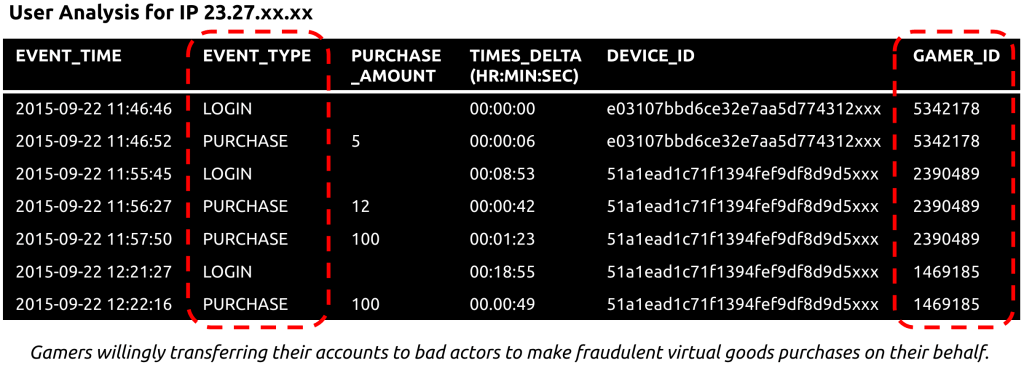[ad_1]

The current announcement that Activision Blizzard acquired King Electronic Enjoyment, maker of the strike activity Sweet Crush, for a staggering $five.nine billion is an acknowledgement of the promising (and profitable) foreseeable future of cell video games.
The world wide gaming market place is projected to arrive at $91.five billion in 2015. While Personal computer and console video games are nevertheless mainstream, cell is the swiftest growing segment — rising 21 per cent 12 months-above-12 months — thanks to the penetration of smartphones in emerging marketplaces and the prosperous “freemium” profits model of cost-free-to-perform video games with in-app purchases. Studies clearly show that people are fast to shell out funds for VIP position, virtual goods to raise activity perform or even to win the activity at an average investing of $fifty for every person for every activity.

Image supply: Newzoo, World Game titles Sector Report 2015
With the market place booming so favorable, it is not shocking that on-line criminals have also discovered their way into the ecosystem and are generating a flourishing underground market place for in-activity virtual merchandise. How do they pull this off? In this article are a few attack tactics we have observed in the wild.
Sybil assaults via proxy servers
Proxy servers rented out by cloud solutions make it possible for on-line criminals to noticeably scale up their operations and bypass reputation-based detection devices. In the context of cell activity fraud, they also make it possible for attackers to think a number of pretend identities by simulating presence in unique geographic locations, dependent on exactly where the servers are found.
These pretend identities (or “Sybils” as they are regarded in peer-to-peer networks) are leveraged to just take advantage of activity promotions for scarce or minimal virtual goods, this sort of as people that are only given in particular locations or in minimal each day portions.
They are also used to execute virtual forex arbitrage: By simulating presence in unique countries, the attacker can purchase virtual merchandise in one site (the one with the weaker forex), resell them at a further site (the one with the stronger forex) and pocket the cost variance.

The attacker routes visitors via an overseas proxy server to simulate presence in a further geographic site (one), purchase virtual goods from the activity app (two) and resell to gamers for a gain (three).
These “proxy” servers in unique networks and locations are not minimal to hosts rented out by cloud solutions and hosting suppliers. Attackers also exploit compromised machines found in properties or business DSL networks, this sort of that the destructive functions surface equivalent to (or intermixed with) people from benign people.
In-app purchase brokers
Some cell video games do not make it possible for virtual goods to be transferred among players. In this situation, the goods can not be obtained in progress to be resold at a later on time, as in the previously mentioned illustration.
Not to be defeated, on-line criminals just take a unique technique with these sorts of video games and virtual item marketplaces. They will advertise cost discounts so irresistible — at 25 per cent off, or much more — that players hand above their activity app login qualifications to have a person else purchase the virtual goods on their behalf. The sellers will even remind you to modify your password soon after the transaction is completed to “avoid avoidable problems.”

Guidelines from sellers on the underground market place for cell activity players looking to purchase low cost virtual merchandise.
The desk underneath demonstrates an illustration of this attack in action. Each row corresponds to an occasion logged by the cell activity app. We can see this attacker frequently log on as unique people (gamer IDs) to make purchases, devoid of generating any other sorts of gatherings indicative of actual activity perform. In truth, just about every person is only logged in for at most a few minutes — until eventually the purchases are entire.

Phony or stolen credit rating playing cards
No person would danger getting in this business if the spend-off wasn’t great, so how can the underground market place offer this sort of steep discounts? It’s back again to the supply of a great deal money fraud and complications in current yrs — counterfeit or stolen credit rating playing cards from information breaches.
Unlike in-retailer purchases that can be shielded by EMV chip-and-pin technological innovation, activity app developers have pretty minimal techniques by which to confirm an in-app, card-not-current transaction. Present methods tend to rely on rules-based devices or supervised finding out designs, which can only respond to regarded attack styles.
To make things much more sophisticated, in-app transactions are frequently mediated by cell payment platforms, this sort of as Apple App Retail store or Android Spend, so apps lack visibility into particulars of the transactions for distinguishing among genuine and fraudulent purchases.
The real cost of in-app purchase fraud
Why does all of this issue to cell video games? Indeed, virtual goods really do not actually “cost” something, but this in essence suggests that there is a massive volume of funds missing to unrealized gains. It is approximated that for each genuine virtual item marketed and downloaded, there are seven.five virtual item downloads missing to fraud. This amount can be a great deal higher in some countries — in China, for illustration, there are 273 fraudulent virtual goods downloaded for each genuine item. This suggests a staggering fifty-ninety nine per cent of all virtual great purchases are illegitimate.

But perhaps the largest concern for video games is the detrimental effect on person practical experience. When fraudulent in-app purchases pollute the economics of the activity and make it possible for some players to acquire an unfair advantage, it ruins the practical experience for other players. With the gaming landscape getting as aggressive as it is now, most players will not put up with this, and video games can not afford to pay for to reduce people.
These are only a handful of attack tactics confronted by cell gaming apps, and the full record is not only a great deal for a longer time, but also constantly modifying to evade existing detection methods. As cell apps rely much more and much more on in-app “virtual” purchases, they will have to also be completely ready to battle fraud. There is a authentic charge linked with missing virtual merchandise, and one that has massive detrimental effect on the two person expansion and organization gain.
Featured Image: La Gorda/Shutterstock
Browse A lot more In this article
[ad_2]
There Is True Fraud In The Underground Sector For In-Video game Digital Merchandise
No comments:
Post a Comment